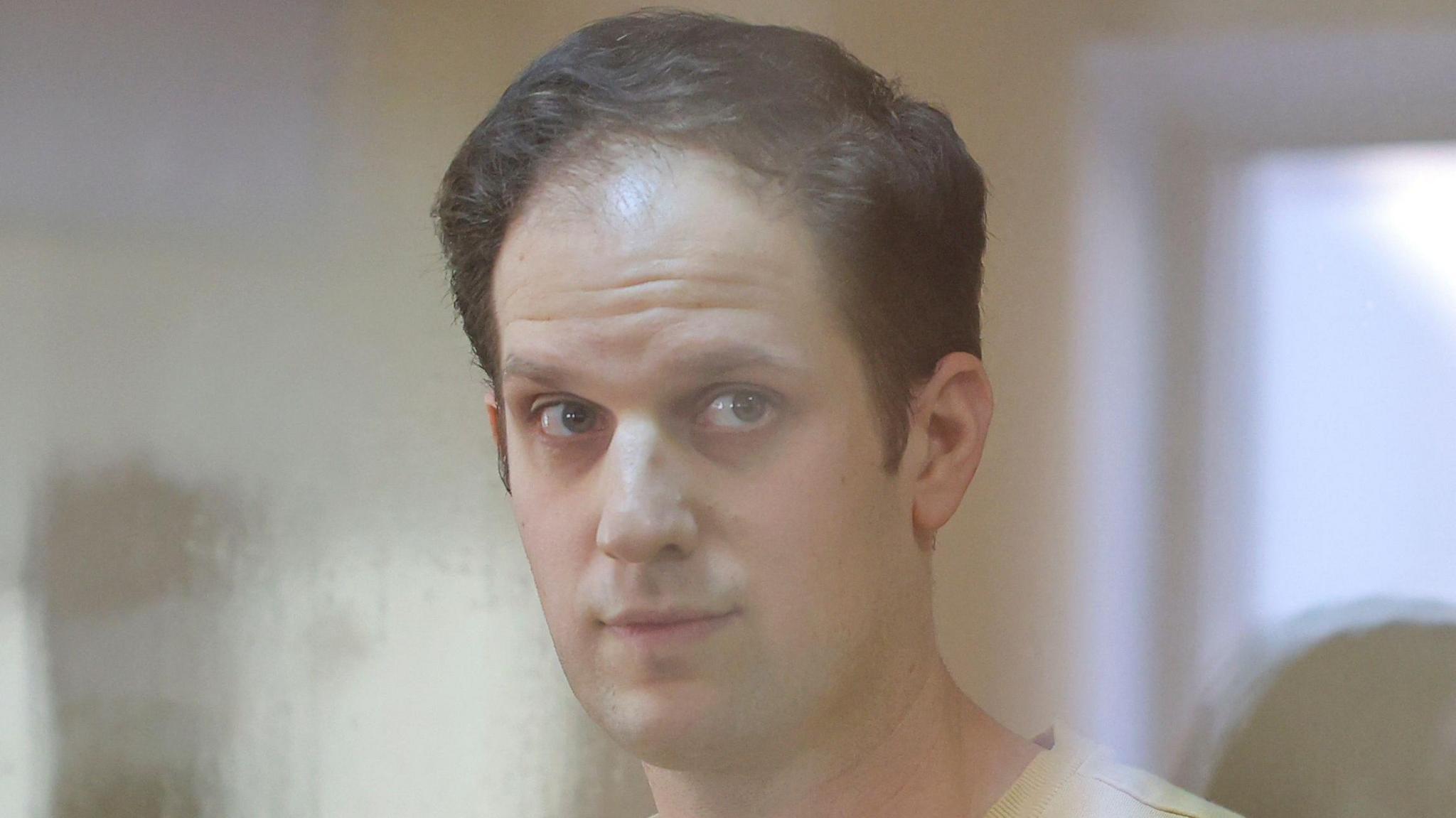US journalist Gershkovich to stand trial in Russia on espionage charges

Wall Street Journal reporter Evan Gershkovich has spent over a year behind bars in Moscow
- Published
US journalist Evan Gershkovich will go on trial in Russia on espionage charges, Russian prosecutors have said.
The Wall Street Journal (WSJ) reporter has been accused of collecting "secret information" from a Russian tank factory on behalf of the CIA.
The prosecutors say he will stand trial in a court in Yekaterinburg - the city in the Urals he was arrested in last March while covering the war in Ukraine.
Mr Gershkovich, 32, denies the charges, while the WSJ dismissed the forthcoming trial as a "sham". The US considers the reporter to be "wrongfully detained".
Russian prosecutors said on Thursday that an investigation had established that the reporter had collected "secret information" about the "production and repair of military equipment" from a Russian tank factory.
In a statement, they accused him of carrying "out the illegal actions using painstaking conspiratorial methods".
This, prosecutors said, was "on the instructions of the CIA".
Since his arrest, Mr Gershkovich has remained in pre-trial detention in Moscow, 1000 miles (1609km) from Yekaterinburg.
He has spent over a year behind bars and if found guilty faces up to 20 years in prison.
His arrest marked the first time Russia had accused a US journalist of espionage since the Soviet era.
The American embassy in Moscow has said the grounds for his detention are "baseless".
The Wall Street Journal has previously accused Moscow of "stockpiling Americans in Russian jails in order to be able to trade them at a later date".
Russian officials barely hide the fact they see the American journalist as a bargaining chip.
Earlier this year, in an interview with Tucker Carlson, President Vladimir Putin said he believed a deal could be reached to free Mr Gershkovich.
Mr Putin said it relied upon "our partners [taking] reciprocal steps", and hinted at the identity of a person Russia would accept in a prisoner exchange.
Related topics
- Published29 March
- Published26 January
- Published9 February